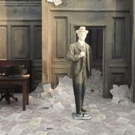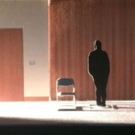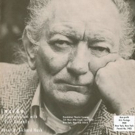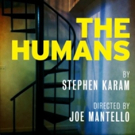Roundabout Theatre Company - Page 2
 Roundabout Theatre Company is a not-for-profit theatre dedicated to providing a nurturing artistic home for theatre artists at all stages of their careers where the widest possible audience can experience their work at affordable prices. Roundabout fulfills its mission each season through the revival of classic plays and musicals; development and production of new works by established playwrights and emerging writers; educational initiatives that enrich the lives of children and adults; and a subscription model and audience outreach programs that cultivate loyal audiences.
Roundabout Theatre Company is a not-for-profit theatre dedicated to providing a nurturing artistic home for theatre artists at all stages of their careers where the widest possible audience can experience their work at affordable prices. Roundabout fulfills its mission each season through the revival of classic plays and musicals; development and production of new works by established playwrights and emerging writers; educational initiatives that enrich the lives of children and adults; and a subscription model and audience outreach programs that cultivate loyal audiences.May 9, 2018
Tim Hatley/Costume and Set Design My starting point as a designer is always to read the play, and in the case of Travesties, which is a complex play, it required careful reading and thought to begin to understand the threads and layers of the writing, and talking closely with the director, Patrick Marber. It seemed to me that our production needed a strong yet simple approach to the design. The shifting of time and location is clear in the writing and did not need physical transitions to interrupt the flow. Our space is both present and memory, library and apartment, and allows for characters to appear and disappear within. The costumes are rooted strongly in the period, and their palette was developed in tandem with the development of the space. Cross references to Oscar Wilde's play, The Importance of Being Earnest, were an enjoyable anchor to designing the play.
May 8, 2018
On April 21, 2018, Patrick Marber spoke about Travesties with Education Dramaturg Ted Sod as part of Roundabout Theatre Company's lecture series.
May 7, 2018
Ted Sod: Tell us about yourself: Where were you born and educated? When and why did you decide to be an actor? Did you have any teachers who had a profound influence on you?
April 4, 2018
Arnulfo Maldonado/Set Design Bobbie Clearly by Alex Lubischer is exciting in its structure and unique storytelling -- I was immediately struck by how engaging the interview format can feel within a theatrical context. What is the setting for such a world? In the film/documentary version of this play, these subjects would be interviewed against a static background. But this play spans both various locations and time.
March 29, 2018
What is corn detasseling? Every corn plant has both male and female parts-the tassel and the silk, respectively. Detasseling is the process of removing the male parts of some rows in a cornfield in order to create strictly female plants, which can then be pollinated by the remaining male plants in the field. While mechanical pullers are used to pull as many tassels as possible, they typically only get about 70% of them, meaning that the rest have to be pulled by hand.
March 28, 2018
February 24, 2018, Lindsey Ferrentino and Scott Ellis spoke about Amy and the Orphans with education dramaturg Ted Sod as part of Roundabout Theatre Company's lecture series.
March 27, 2018
Amy and the Orphans is full of design challenges. For starters, it is a road trip play. Lindsey Ferrentino has written a play that has 18 scenes in 13 locations and in which there is no home base. Every location she describes is transient and impersonal, and most of the scenes take place in public locations. As a designer, the question becomes why?
March 26, 2018
Ted Sod: Give us some background information on yourself: Where were you born? Where were you educated? When did you decide to become a playwright and why?
March 20, 2018
Ted Sod: Why did you want to direct Amy and the Orphans by Lindsey Ferrentino? How did you get involved with this production?
March 19, 2018
When I saw the Menier Chocolate Factory's production of Travesties on the West End last spring, I was stunned. Director Patrick Marber had captured Tom Stoppard's sprawling, absurdist epic with a captivating electricity that I had never before seen. Embracing the full power of Stoppard's explosively theatrical dive into the past, Patrick harnessed every bit of the play's sharp hilarity, keen topicality, and, most of all, boundless thrill. I knew that I needed to make Marber's triumphant and endlessly entertaining production part of our 2018-2019 season and give Travesties its first-ever Broadway revival since its 1975 debut, which won the Tony Award® for Best Play. A vortex of caricatural historical figures, clashing political philosophies, and radical artistic movements, Stoppard's early masterwork dismantles just about every convention of the Western stage and reassembles their parts into an entirely original theatrical machine. There's no simple narrative thread in this play, no strict adherence to the laws of our physical world, no clear divide between fact and fiction -- and no end to the tenets of artistic tradition that this whirlwind of a comedy deconstructs.
March 13, 2018
Dear Audience Members and Supporters, I'm happy to share that last week Roundabout's Board of Directors adopted a refreshed mission statement, core values and a commitment to improve in the areas of equity, diversity and inclusion.
October 5, 2015
In Ugly Lies the Bone, Jess's injuries-severe burns sustained from an IED explosion-are indicative of the unique costs of the wars in Iraq and Afghanistan. As of February 2013, these two conflicts had resulted in over 6,500 deaths, nearly half of them from IEDs. IEDs, or Improvised Explosive Devices, are homemade bombs, constructed at a relatively low cost with readily accessible combustive materials (fertilizer, gunpowder, hydrogen peroxide). Occasionally packed with sharp materials (glass, nails, metal) to increase the likelihood of shrapnel-like injuries, the bombs are often buried along the roadside, to be detonated remotely or automatically when troops walk or drive over the sites. When IEDs first appeared in combat zones, in early 2002, the military didn't know how to categorize the deaths that were occurring as a result of seemingly unmanned explosions. The first death immediately (rather than retroactively) classified as resulting from an IED explosion occurred on November 14, 2003. In the following decade, IEDs came to be common knowledge in both the military and the media, and their results have left a lasting legacy-not only in deaths, but also in (far more common, and just as devastating) injuries.
October 2, 2015
The Roundabout family mourns the loss of Brian Friel. This gifted playwright gave so many beautiful stories to the world, and we will treasure those that we were able to bring to life with him. Brian always wrote with great depth, whether through his unmatched sense of language, surprising humor, righteous anger, or incredible heart. His commitment to bringing stories of his Irish homeland, often through the town of Ballybeg that he created and populated with so many memorable tales and characters, was admirable.
September 29, 2015
Harold Pinter was born in Hackney, in London's East End, in October of 1930. An only child, he was born to Jewish parents of very moderate means; his father, a tailor, and his mother, a homemaker, were first-generation descendants of Eastern European immigrants. Like many of his contemporaries, Pinter's childhood was shaped by the onslaught of World War II; at the age of nine, he was evacuated from London through Operation Pied Piper and resettled in a town in Cornwall. The sense of isolation he felt in Cornwall would come to influence his work, as would the changed London to which he returned during the Blitz, where he was witness to, as his 2008 Guardianobituary put it, 'the dramatic nature of wartime life - the palpable fear, the sexual desperation, the genuine sense that everything could end tomorrow.'
September 25, 2015
Ted Sod spoke to Sarah Steele on her role as Brigid Blake in Stephen Karam's The Humans. ?TED SOD: Where were you born? Where were you educated? When did you decide you wanted to become an actor?
September 24, 2015
Ted Sod spoke to Helen Edmundson about the process of her writing her stage adaptation of Emile Zola's novel Therese Raquin.
September 23, 2015
Therese Raquin, a stunning play by Helen Edmundson adapted from Emile Zola's classic novel, makes its Broadway debut October 1 as the first production at Studio 54 in this 50th Anniversary season.
September 22, 2015
The New York premiere of Stephen Karam's The Humans, a new play directed by Joe Mantello begins previews September 30 as the first production at the Laura Pels Theatre in this 50th Anniversary season.
September 18, 2015
Education dramaturg Ted Sod speaks to Stephen Karam about his process of writing The Humans. TED SOD: The Humans is the third play of yours to be produced at Roundabout. Previously, we have presented Speech & Debate at Roundabout Underground and Sons of the Prophet on the Pels stage in the Steinberg Center. What do you find exciting about having your work produced here? Do you consider Roundabout your artistic home?
Videos





















